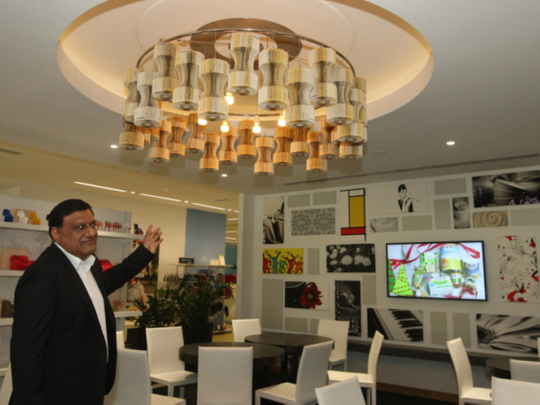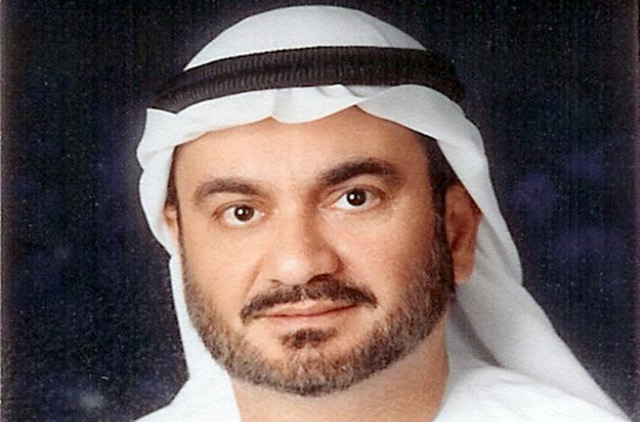
An awareness of sustainable building practices and the environment is on the rise worldwide, including the Gulf. While the region enjoys a favourable supply of cheap primary energy, this will not last forever. The Emirates Green Building Council (EGBC) says that the UAE alone expects an increase in demand for primary energy of more than 70 per cent by 2019 with total spending of more than $926 million (about Dh3.4 billion).
With regard to alternative, sustainable energy, emphasis is now on solar power, which the region has in abundance. “Adapting solar energy into the total energy mix of buildings is a significant step forward,” says Adnan Sharafi, Chairman, EGBC.
The council has been encouraging the implementation of green building policies and regulations in the UAE since its inception in 2006, he adds, backed by the adoption of consistent rating systems and an increase in overall knowledge sharing as well as information on built environments and communities. The council has also created a task force of industry experts to identify the major challenges that inhibit the implementation of energy efficiency into projects in the UAE and has proposed approaches that can be taken to overcome possible challenges.
Municipal officials will be presenting the latest Dubai Green Building Code at The Big 5 exhibition in the city’s World Trade Centre in sessions today and tomorrow. The legislation, to come into effect by 2014, will be mandatory for all new projects across the residential, commercial and industrial sectors. Its remit includes ecology, energy, water and waste efficiency, experts say.
“We are currently working to strengthen our efforts in educating all concerned on the requirements they will have to meet,” says Abdulla Raffia, Assistant Director-General of Engineering, Dubai Municipality.
There will be a full outline of what is required for the assessment and certification of green buildings with a follow-up workshop that will provide more in-depth information on the assessment procedure.
Important aspects that make buildings green include solar panels to produce sustainable energy, heat-reflective paint, low-power LED lighting together with an intelligent lighting system, special insulation, heat-reflective window films, water recycling and reuse systems, the recycling of interior and exterior materials and the reduction of waste.
For example, the installation of integrated photovoltaic modules as a replacement for conventional building materials could provide an average electricity surplus of 25,000 kilowatt hours per year in a residential building, thus reducing utility bills significantly and benefiting the environment, say experts.
The UAE government strong-ly supports green building initiatives — Abu Dhabi’s Masdar initiative launched the world’s largest concentrated solar power plant in March this year and Dubai launched the Dh12-billion Mohammad Bin Rashid Al Maktoum Solar Park. Furthermore, Abu Dhabi launched its Estidama initiative back in 2008. The programme is the sustainable building framework of Abu Dhabi’s Urban Planning Council and uses a special rating system to measure the sustainability of a building. The programme is mandatory and focuses on the overall life cycle of a building, together with sustainable management and operation methods.
Dubai has already had remarkable success with its green initiatives: The Change Initiative (TCI) building on Shaikh Zayed Road this year secured the highest Leadership in Energy and Environmental Design rating of Platinum from the US Green Building Council (GBC), a non-profit organisation dedicated to promoting sustainable buildings across the world. TCI achieved 107 points out of 110, making it the most sustainable commercial building in the world.
“The store is a great prototype for sustainable real estate worldwide,” says S. Richard Fedrizzi, President, CEO and Founding Chairman of the GBC.
But there is also demand for environmentally conscious investors. The EGBC is currently discussing financial incentives and mechanisms for the private sector to develop green buildings and retrofit existing developments to accepted standards.
“With awareness about energy-efficient buildings gaining strong interest and more stakeholders coming forward to develop green projects and retrofit existing buildings, there is a strong emphasis now on the financing aspects of such undertakings,” says Sharafi.
However, while he concedes that there are challenges in financing energy-efficient projects, he says that the council is “confident that discussions will pave the way for more tangible initiatives that will further underline the UAE’s thought leadership in promoting sustainable growth.”













